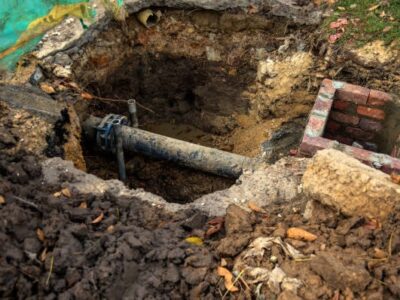The process becomes more complex when buying or selling a property with a pool due to the additional features and risks associated with pool ownership. Pool inspections play a critical role in real estate transactions, offering buyers and sellers insight into the pool’s condition, safety, and compliance with local regulations. A thorough inspection can help prevent unexpected costs and future disputes by addressing potential issues upfront. We will explore the significance of pool inspections, how they impact real estate transactions, and why they are essential for both parties involved in the deal. We will also learn about it and look at the key elements inspectors focus on during their assessments and the broader implications these inspections have on negotiations and final decisions.
Ensuring Safety Standards and Compliance
Making sure the pool satisfies safety criteria and follows local laws is one of the most important reasons behind doing a pool inspection during a real estate purchase. Particularly for youngsters, pools can be rather dangerous; so, following architectural rules is vital to reduce these risks. Generally needed by law in many areas, inspectors will evaluate the fence, gates, and other obstacles of the pool to make sure they are high enough, properly fastened, and self-closing.
They will also make sure the drainage system of the pool is operating as it should help to avoid mishaps including suction entrapment. Many countries have rigorous regulations for pool safety, hence failing to satisfy these criteria could result in expensive fines or even demand to change the pool. Knowing the pool satisfies legal and safety criteria will help customers to relax. For sellers, tackling these problems simultaneously before marketing the property can help avoid delays or possible discussions depending on non-compliance.
Identifying Potential Maintenance and Repair Costs
Finding any possible maintenance or repair problems that might develop following a purchase is another vital function of pool inspections. Older specifically, pools need constant maintenance to be in good shape. Examining for fractures in the pool surface, tile damage, or problems with the pool liner, inspectors will assess the structural integrity of the pool.
They will also look at the state of the filtration equipment, electrical systems, and pool plumbing. Problems including leaks, malfunctioning pumps, or damaged heaters invisible to the untrained eye can be found during a pool inspection. Early identification of these problems helps buyers and sellers prevent unwelcome surprises and guarantees that required repairs are finished before the house is sold. The inspection report allows buyers to ask that the seller pay for repairs or negotiate a reduced price. On the other hand, sellers might handle repairs ahead of time to increase the attractiveness of their house and prevent problems during negotiations.
Influencing Property Valuation and Negotiation
The valuation of a property and the result of talks can be much changed by a pool inspection. The state of a pool could either increase or decrease the whole value of a property. Especially in places where pools are a desired feature because of climate or lifestyle choices, a well-kept, functional pool can boost the attractiveness of a home. On the other hand, should the inspection expose major problems including structural damage or antiquated equipment, the value of the pool may be reduced and hence the general worth of the property may also suffer.
In this situation, consumers may choose to renegotiate the offer or ask that the seller fix the issues before moving forward with the sale. If the pool is in great shape, sellers can utilize the inspection findings to support a higher asking price; alternatively, they may choose to perform required repairs to improve the value and appeal of the pool. In the end, the inspection report is a bargaining instrument that enables both sides to come to a just compromise depending on the state of the pool.
Protecting Buyers from Hidden Liabilities
Pool inspections guard purchasers from hidden obligations resulting from a deal. During a first survey of the land, pool-related problems including incorrectly placed equipment, unapproved buildings, or failed safety elements might not be obvious. A professional pool inspection exposes possible hazards or liabilities and offers buyers a full picture of the state of the pool. Should the pool be neglected or there be safety or compliance concerns, the buyer might choose whether to go forward with the purchase. Sometimes the buyer might change their offer depending on the results of the inspection or ask the seller to do the required repairs. Without a pool inspection, purchasers may discover expensive problems that could have been prevented with a suitable evaluation, which would annoy and maybe legal conflicts following the acquisition.
Real estate transactions heavily rely on pool inspections since they provide sellers and buyers with important knowledge of the quality, safety, and compliance with local laws of the pool. A pool inspection can enable both sides to make wise decisions and prevent unanticipated expenses by spotting possible maintenance and repair problems, guaranteeing safety standards are followed, and offering insight into long-term value. Before agreeing to the property, a pool inspection guarantees buyers are completely informed of any required repairs or improvements and helps guard them against hidden liabilities. A proactive pool inspection can help sellers present their homes more appealing, ease negotiations, and lower the possibility of conflicts. In the end, a pool inspection is crucial to guarantee that a property transaction goes without hiccups and that both sides find the result satisfactory.
If you want morе еxciting contеnt visit. Globallyviz.com














Comments